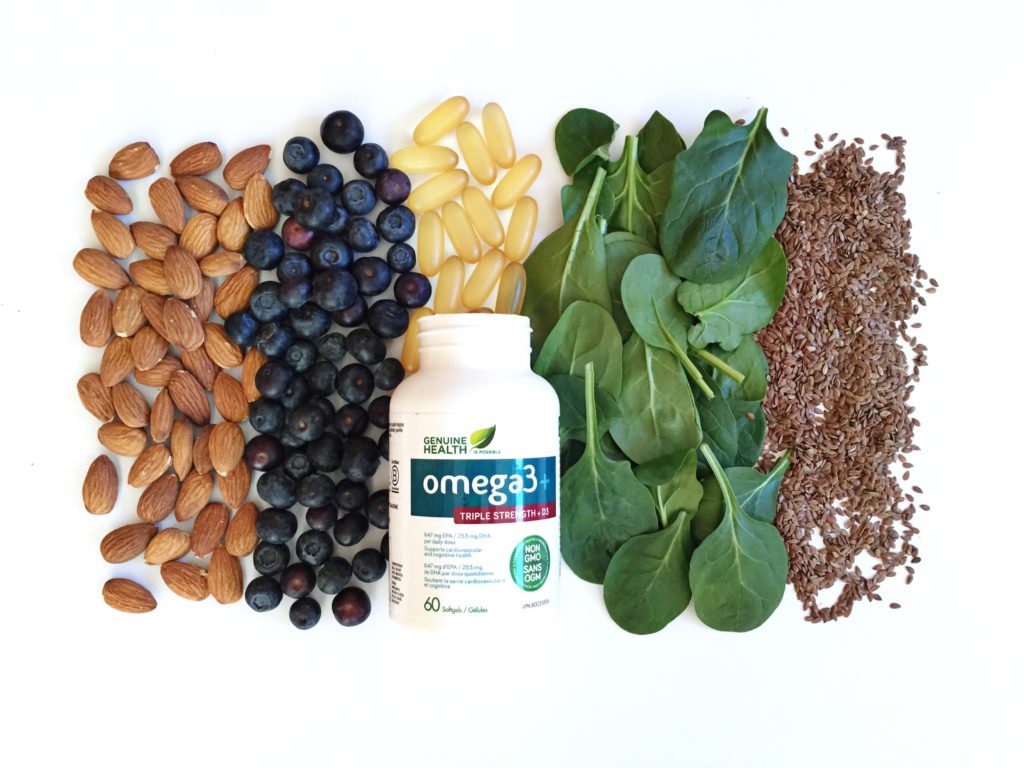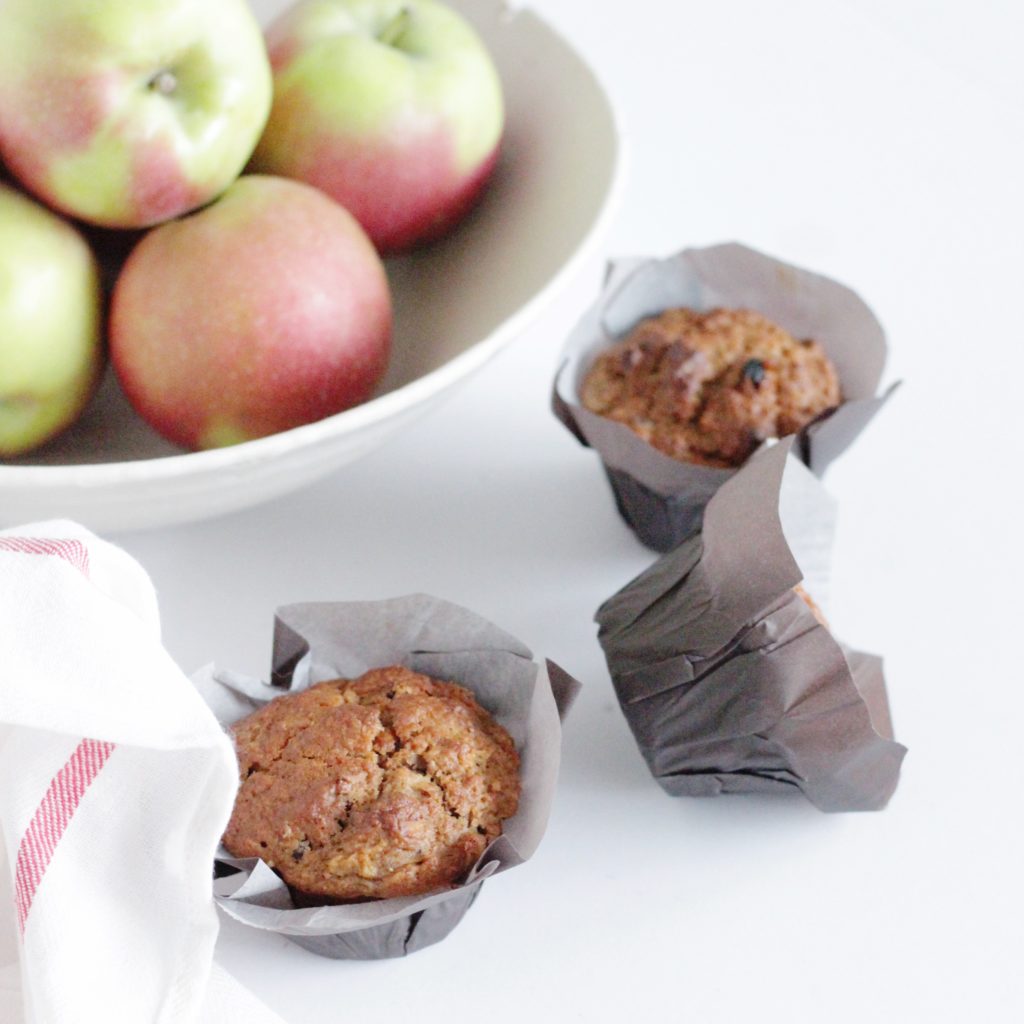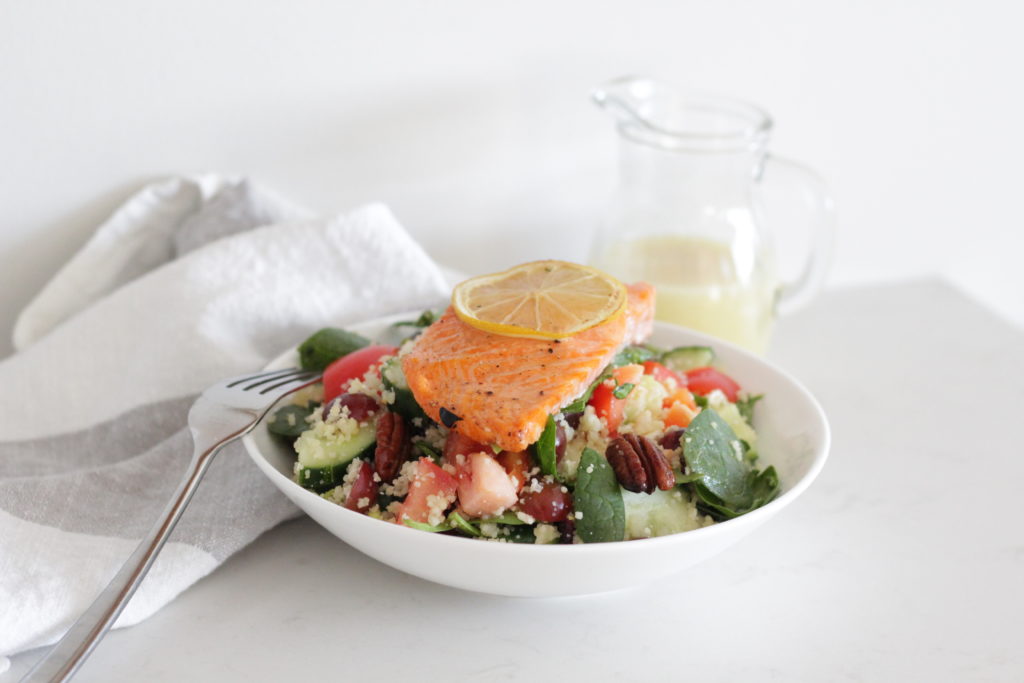So, you’re expecting a baby? Congratulations! There is truly no greater joy than being a parent, get ready for your heart to burst with love! But before you reach for that pint of ice cream, read this post. The notion of ‘eating for two’ isn’t quite as it sounds.
Yes, you need more nutrition. But you don’t need twice the calories, and eating too much (or too little) can actually be dangerous (keep reading to find out how many extra calories you actually need…it’s shocking!).
Here are my nutrition tips for each stage of your pregnancy to keep you and your baby healthy!
Nutrition Tips for Throughout Your Pregnancy:
- Take a prenatal supplement daily that contains the minimum amount of folic acid (400mcg). Food sources of folate include orange juice, strawberries, spinach, fortified breakfast cereal (check labels), lentils, fortified pasta and bread, rice, oatmeal, and broccoli.
- Take an omega-3 supplement with 900-1000mg/day of combined DHA & EPA (helps the baby’s brain and eye development).
- Drink plenty of water. Your blood volume increases with pregnancy; a pregnant woman needs 10 cups of water a day (from all sources). Tea counts, especially the herbal ones (just stay away from camomile tea and any others that have crazy herbs in them without checking with your dietitian or physician first). I carry my Swell water bottle with me everywhere!
- Continue to exercise unless otherwise recommended by your physician. The golden rule is to not over-exert yourself, but that you may usually continue any exercise that you did before getting pregnant. It’s not advised to start up new activities during pregnancy. Exercise will increase your energy through your pregnancy, decrease discomfort as the baby grows, help your body through delivery, and allow you to ‘bounce back’ easier once the baby is born.
- Minimize added sugar and highly processed foods and eat as many whole foods as possible. Focus on whole grains, lean protein, leafy greens and healthy fats such as nuts, olive oil and avocados.
- Be extra cautious about food borne illnesses. Don’t eat unpasteurized dairy products or juices, sprouts, undercooked meat or raw fish (i.e.: sushi) and stay away from processed meats. Your immune system is suppressed when you’re pregnant, putting you at higher risk for food-borne illnesses.
- Avoid large predatory fish at the top of the food chain such as shark, swordfish, king mackerel and tilefish and tuna as these fish contain higher levels of mercury. Mercury consumed during pregnancy has been linked to developmental delays and brain damage. Canned, chunk light tuna generally has a lower amount of mercury than other tuna, but still should only be eaten in moderation.
- Avoid alcohol and minimize or avoid caffeine (keep your caffeine intake under 300mg/day which is 3 small cups of coffee per day).

Nutrition Tips for the First Trimester
Growing a baby is hard work, and the first trimester can put some women through the wringer. Having just gone through this myself (I will admit, I’m SO relieved to be past this stage), I can completely attest to this. I would like to say that I was the model of how to eat during this stage, but sadly that isn’t the case. Like many women (approximately 50% according to the stats), I experienced morning sickness, which really is a misnomer: I was sick morning, noon and night. Most women are super sensitive to smells and tastes at this stage, and I was no exception. My husband would ask me what I wanted for dinner and I would cry: I was so hungry but didn’t want ANYTHING! Needless to say, many women crave very simple foods, if any foods at all, and have an aversion to all the good things you are supposed to eat ‘by the book’. My advice is, do your best and don’t beat yourself up.
Despite the fact that your body is working incredibly hard to build a little human, you need a shockingly small amount of additional calories during the first trimester: only 100 per day on average. This is the equivalent of a small bowl of cereal to put it into perspective. The catch is that you need a disproportionate higher amount of nutrients (this is the case throughout your entire pregnancy), which makes it even more important to do your best to pack your diet with nutrient rich foods to make every mouthful count. If you don’t have morning sickness, make the best food choices possible focussing on fruits, vegetables, whole grains and lean protein with plenty of water. Here are some practical tips to get you going:
- Eat small frequent meals, especially if you experience morning sickness. Carbohydrates are often well-tolerated: whole grain cereal with a banana, crackers or toast is sometimes all that you can get down. I ate a lot of smoothies which I highly recommend and packed them with kale, spinach, yogurt and fruit which really helped. Find the time of the day that you feel best and eat as healthy as possible during that time to make up for the rest of the day if possible, and don’t let yourself get over-hungry.
- Food ideas that may help combat morning sickness but still pack some nutrition include:
- Whole grain toast or crackers with peanut butter
- Yogurt and fruit
- Smoothies or Smoothie Bowls
- Apple slices and almond butter
- Crackers and cheese
- Unsweetened cereal with milk
- Homemade macaroni and cheese
- Dried fruit (such as mango)
- Lemon water (or anything lemony: I loved these lemon recipes)
- Pears or oranges with cottage cheese
- Oatmeal (you can try different variations like this comforting Apple Oatmeal)
- Frozen yogurt (you can make your own in seconds, try this Strawberry one!)
- Pancakes with fruit and yogurt
- Homemade fruit muffins
Nutrition Tips for the Second & Third Trimesters
The second trimester is commonly known as the ‘sweet spot’ of pregnancy. Many women who experienced morning sickness in the first trimester are now feeling perfectly fine, and this is typically the trimester where energy levels are up and women feel great! Now is the time to eat as healthy as possible now that the morning sickness isn’t a challenge any longer (some women are sick throughout their entire pregnancy, I’m sorry if this is you!).
Your calorie needs have increased vs the first trimester; you now need an average of an additional 300-400 calories a day for the rest of your pregnancy. Which is really just the equivalent of a small meal! Eating too much leads to excessive weight gain and can increase your risk of gestational diabetes, backaches, high blood pressure (which can lead to a complicated delivery), and needing a cesarean birth because your baby is very large. Of course, on the flip side, gaining too little weight during pregnancy is a concern. It can lead to low birth weight, premature delivery, and, later, developmental delays, learning disabilities, and chronic health problems in your baby. If you were underweight before getting pregnant you will need to gain more weight (and therefore will likely need more calories), the opposite is true if you were overweight before pregnancy. HOWEVER, pregnancy is not the time to go on a cleanse, follow a restrictive diet or lose weight regardless of your pre-conception weight status. It IS a time to make healthier choices for the benefit of you and the baby.
A common complaint at this stage is heartburn. Eat small frequent meals, avoid spicy or fatty foods and stay upright after meals. Another common issue is constipation. Your iron supplements could be to blame, but talk to your physician before adjusting anything. Otherwise eat plenty of fibre and drink adequate fluids.
Lastly, the topic of the dreaded stretch marks. Stretch marks happen when your body grows faster than your skin can keep up with, causing the elastic fibres in your skin to break. About 90% of women get stretch marks, so if you’re in this camp clearly you’re not alone! Here are a few tips to help reduce the risk of developing stretch marks (there’s no way to absolutely prevent them):
- Moisturize: I used tons of oils like this one on my skin with a rich lotion on top.
- Vitamin C: Eat plenty of citrus, tomatoes, berries, kiwi and other foods rich in Vitamin C as it plays a role in collage synthesis.
- Gain Weight slowly: Avoid rapid weight gain if possible, which puts extra stress on your skin. You still want to gain the recommended amount (25-35 lb. for an average pregnancy), remember, now isn’t the time to lose weight!
- Hydrate from the inside out: Drink plenty of water and other fluids to keep your skin hydrated. Keep a water bottle on you at all times!
Wishing you the healthiest pregnancy possible my friends!
xo
SHOP THE POST










Hi Tori! Thank you for sharing your knowledge, I found it very informative 🙂
I wanted to ask if you have any pregnancy book recommendations? I’ve been reading reviews from all different sources and they’re so inconsistent that I do not know what book to get.
Thank you!
Marta
Hi Marta,
That’s a great question! I confess that I didn’t read too much as I was fortunate enough to have a lot of people around me that are in the medical community and know the nutrition stuff. My best advice is to look at the source: anybody can write a book, but you want to make sure that the person is qualified to give that advice! If it is a nutrition book that you are after, look for either a book written by the medical community or a qualified nutrition expert. For instance, the American Dietetic Association has a book that would be a good choice, and the Mayo Clinic also has a more general prenatal book that I wouldn’t hesitate recommending. The Canadian Medical Association also has a book called Baby Basics if you want something with Canadian content. I hope this helps and CONGRATULATIONS!!!
Thank you for the info Tori, I find I check things through the mayo clinic all the time, love how informative but straightforward their approach is 🙂
The Canadian Medical Association offers the Baby Basics in a free pdf format so that’s always a nice treat!
Thank you for the conratulations, we’ve been trying a long time and have just completed our first IVF transfer and so far so good – feeling very blessed and hopeful 🙂
We tried for a long time too, I’m really happy for you that everything is looking good Marta that’s wonderful news!!!
How many additional calories are required when breastfeeding?
Hi Nicole,
Anywhere between 550-850 additional calories per day have been reported in the literature.
Take care!
Tori
Hello! Is the Genuine Health fermented protein powder in your recipes safe for pregnant women? Thank you!
Hi Alissa, it has stevia in it, which hasn’t been studied much in pregnant women, so I would leave it out to be safe. Thanks! (and congrats!)
Hi Tori,
Any recommendations for probiotics during pregnancy?
Thank you!
Lindsay
Hi Lindsay, I would feel comfortable taking the Genuine Health probiotics. I’m not aware of any contraindications to taking probiotics during a healthy pregancy.
Take care and congrats!!
Tori